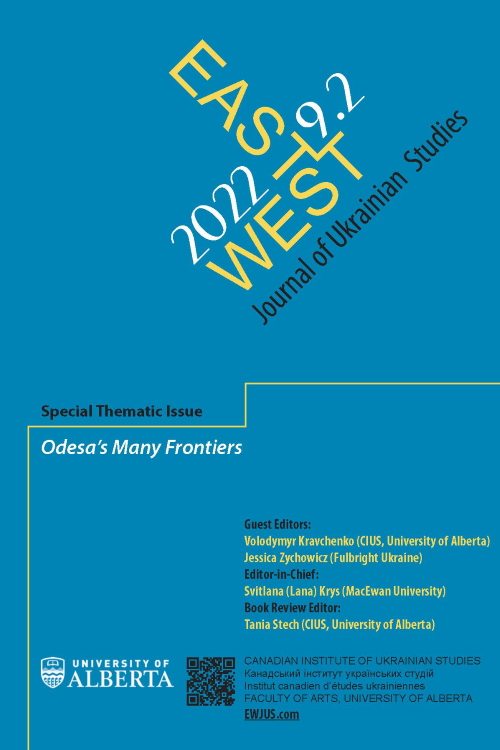Ivan Kozlenko’s Tanzher and the Odesa Myth: Multidirectional Memory As a Strategy of Subversion
Ivan Kozlenko’s Tanzher and the Odesa Myth: Multidirectional Memory As a Strategy of Subversion
Author(s): Vitaly ChernetskySubject(s): Language and Literature Studies, Novel, Ukrainian Literature, Sociology of Literature
Published by: Canadian Institute of Ukrainian Studies at The University of Alberta
Keywords: Ukrainian literature; Odesa; urban myth; multidirectional memory; postmodernist intertextuality; alternative canons; queer writing;
Summary/Abstract: Ivan Kozlenko’s novel Tanzher (Tangier) became one of Ukraine’s biggest cultural events of 2017, vigorously debated in the country’s media and shortlisted for multiple prizes. This ambitious Ukrainian-language novel by a native of a predominantly Russophone city is simultaneously a love letter to Odesa and a daring subversion of the superficial version of the city’s popular myth, widely disseminated both by mass media and by scholarly discourse. A novel whose plot centres on two pansexual love triangles, one taking place in the 1920s, the other in the early 2000s, Tangier employs strategies of intertextual engagement and multidirectional memory to construct an alternative affirming narrative. It focuses on the episodes in Odesa’s history during Ukraine’s wars of independence in 1918–20 and the time it served as Ukraine’s capital of filmmaking in the 1920s and seeks to reinsert this queer-positive narrative into the national literary canon. This article analyzes the project of utopian transgression the novel seeks to enact and situates it both in the domestic socio-cultural field and in the broader contexts of global countercultural practices. It also examines the challenges faced by post-communist societies struggling with the new conservative turn in national cultural politics.
Journal: East/West: Journal of Ukrainian Studies (EWJUS)
- Issue Year: 9/2022
- Issue No: 2
- Page Range: 43-63
- Page Count: 21
- Language: English

